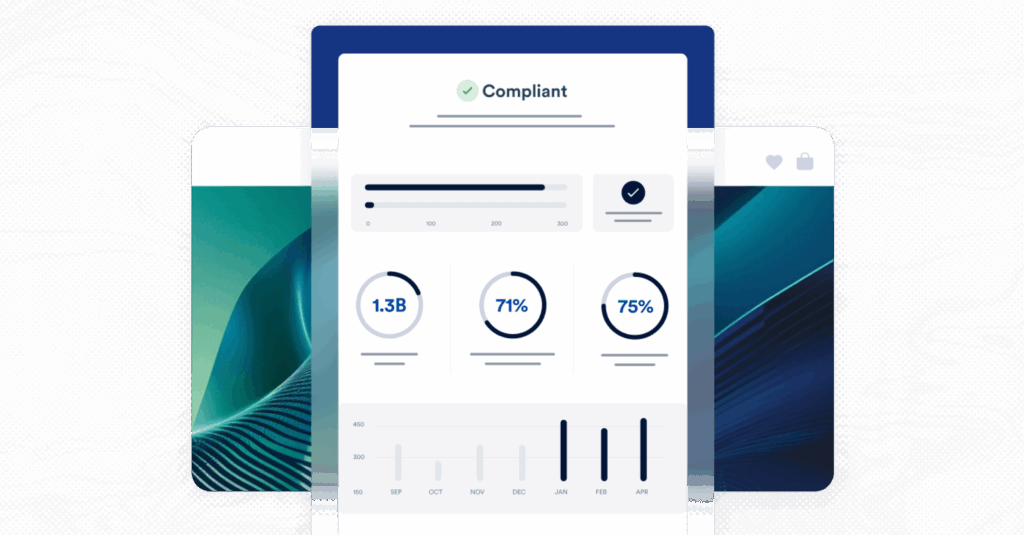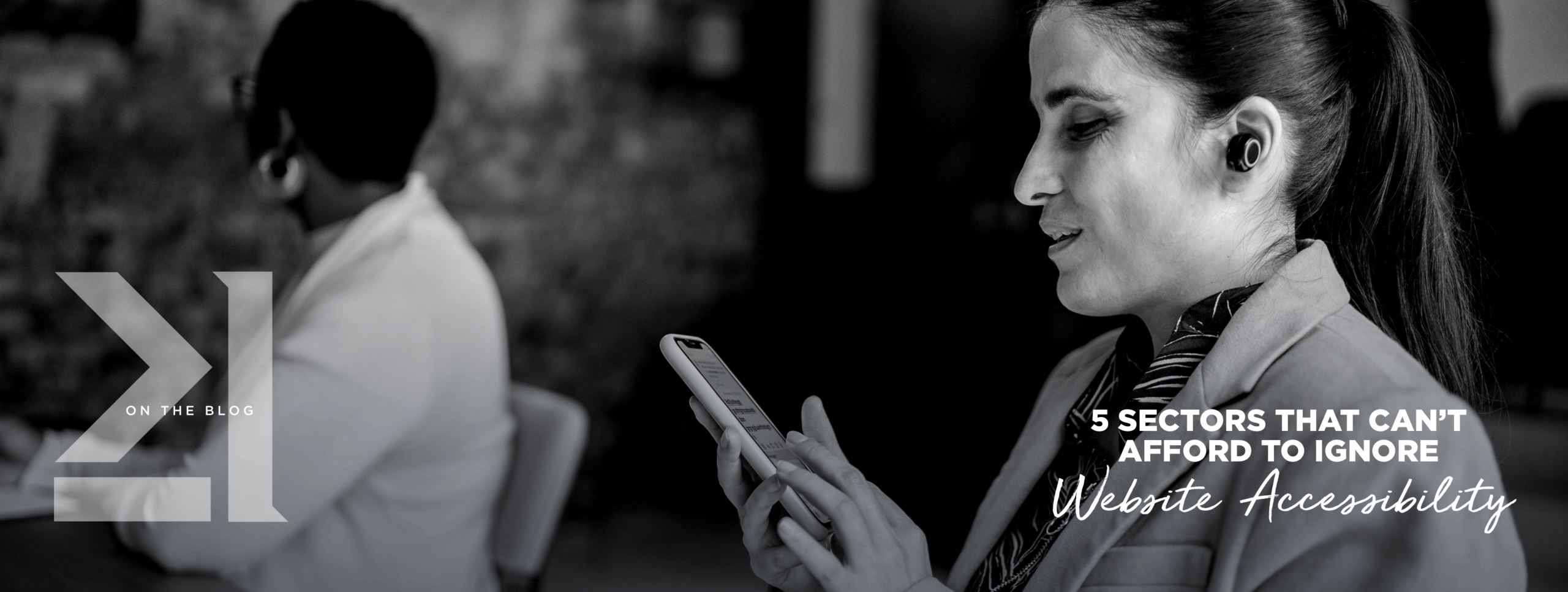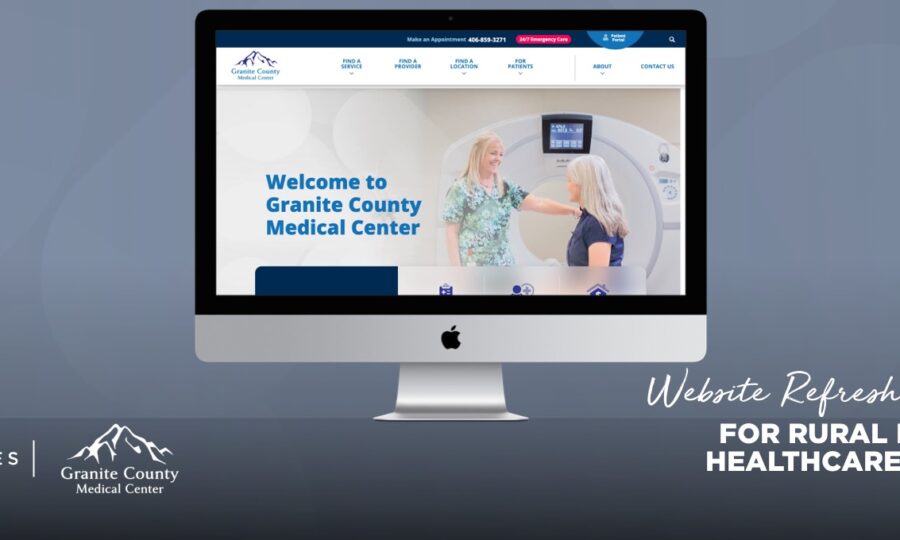Why These Five Sectors Should Prioritize Website Accessibility
Cam Wiest Digital Marketing Specialist
Summary:
- Accessibility is now critical for legal compliance, user experience and AI visibility.
- High-risk sectors like healthcare, education and public services face increased scrutiny.
- WCAG compliance supports equity, trust and future-proof digital strategy.
Making your website accessible isn’t just a nice-to-have — it’s a legal, ethical and practical necessity. And for organizations in high-impact industries, the stakes are even higher.
Failing to meet WCAG 2.1 accessibility standards can lead to lawsuits, government investigations and loss of public trust. Thousands of businesses and public institutions have already faced legal action under the Americans with Disabilities Act (ADA) for having websites that are difficult or impossible to use for people with disabilities.
Here are five sectors where implementing WCAG accessibility guidelines, with help from Kinetic Marketing & Creative, delivers the biggest benefits — both for users and the organizations themselves.
1. Healthcare
From online appointment booking to accessing lab results, patients rely on healthcare websites more than ever. Many users are older adults or people with visual, motor or cognitive impairments — groups that benefit directly from accessible design.
Why it matters:
- Many patients use screen readers or require high-contrast text.
- Accessibility supports better health outcomes through clearer communication.
- Noncompliance risks HIPAA and ADA-related legal challenges.
Benefit: A WCAG-compliant site ensures all patients can navigate your services, improving patient trust and satisfaction and search discoverability.

2. Government and Public Services
Public sector websites must be usable by everyone — period. Whether someone is filing taxes, applying for a permit or looking up voting information, accessibility is a fundamental right.
Why it matters:
- Required by Section 508 and the Americans with Disabilities Act (ADA).
- Inaccessible websites exclude citizens from essential information and services.
- Federal agencies and municipalities have faced lawsuits and complaints for noncompliance.
Benefit: Meeting WCAG guidelines helps agencies avoid legal risk and deliver on their mission to serve all residents equitably.
3. Education
Students, parents and staff need access to course materials, applications and school communications. Without accessibility, many are left behind — especially those with visual, auditory or learning disabilities.
Why it matters:
- Schools are under growing scrutiny from the Office for Civil Rights.
- Online learning tools and portals must work for all students.
- Many states now mandate accessibility for public education websites.
- Failure to comply can result in OCR investigations, loss of funding and public criticism.
Benefit: WCAG compliance supports inclusive education and helps institutions avoid OCR investigations or loss of federal funding.
Need to make your site more accessible?
Kinetic Marketing offers free website accessibility audits to help you meet WCAG 2.1 AA standards.

4. Financial Services
Banking and financial services have moved online but not all platforms are accessible. People with disabilities need to manage their accounts, apply for loans and conduct transactions like anyone else.
Why it matters:
- Inaccessible sites can violate ADA standards.
- Increasing legal action is being taken against banks and credit unions.
- Complex forms and data-heavy dashboards often create barriers.
- Lawsuits have forced banks to make expensive retrofits to digital tools.
Benefit: WCAG-aligned websites reduce legal exposure and improve trust and usability for all customers, not just those with disabilities.
5. Transportation and Travel
Whether someone’s checking flight times, booking a trip or navigating a terminal map, accessibility matters. This is especially true for public transportation and air travel.
Why it matters:
- Airlines are governed by the Air Carrier Access Act.
- Transit agencies must follow ADA guidelines.
- Travelers with disabilities rely on digital tools to plan and move confidently.
- Noncompliance can result in DOT complaints and ADA lawsuits.
Benefit: An accessible travel website creates a smoother experience for users while helping operators comply with federal law and reduce risk.
Bottom Line
If your organization serves the public, accessibility isn’t optional — it’s essential. WCAG provides a clear framework to make digital experiences more inclusive, reduce legal exposure and build a better web for everyone.
Cam Wiest
Digital Marketing Specialist
Cam has a B.A. in Mass Media Communications from Montana State University Billings. He has deep social and paid media experience and serious organizational and communications skills that help him build digital marketing campaigns that deliver impressive results for our clients. Additional credentials include:
- Certified in Web Content Accessibility Guidelines
- Google Ads Search, Display, and Video Certificates
- Hubspot Marketing Certified


